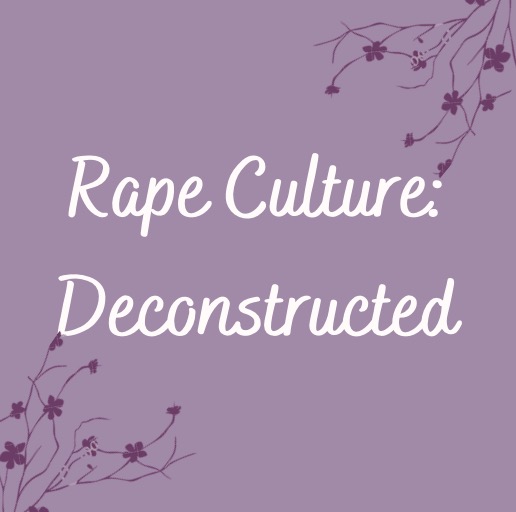April is Sexual Assault Awareness Month. One in six American women have survived a completed or attempted rape (14.8% completed; 2.8% attempted). 33% of women who have been raped contemplate suicide.
Of 1000 sexual assaults, 230 are reported and 5 of them result in a conviction. Rape Culture and the Patriarchy maintain these statistics. As a therapist specializing in working with young women who have experienced sexual abuse, a good portion of the work my clients and I do is spent challenging internalized messages about their experience from the Patriarchy so their healing process can begin. Here’s some of the internalized messages that we challenge and deconstruct:
There’s no such thing as non-consensual sex; there is fully, 100% consensual sex and there is rape. Manifestation of a gray area perpetuates Rape Culture.
- It doesn’t matter what someone was wearing; suggesting otherwise is victim-blaming and thus sides with the rapist.
- Sexual trauma changes one’s brain structuring and suggesting that one can “just get over it” further perpetuates the problem.
- Sexual assault, especially in childhood, is most likely to be perpetrated by someone we know. Don’t discount someone’s story because they were in a relationship or their abuser was a family member or friend.
- Just because a survivor has positive memories with their abuser and/or was/still is in love with them, DOES NOT mean that they weren’t raped.
- Reporting a sexual assault does not “ruin” the abuser’s reputation: it makes their reputation more accurate.
- A survivor’s choice to disclose is THEIR CHOICE. This means timing, to whom, amount of information, etc.
As women, we are socialized by the Patriarchy to second-guess our own experience. This socialization and internalized messages perpetuate Rape Culture. Rape Culture was established by the Patriarchy as a way to excuse violence against women and keep women oppressed. Many of the internalized messages that my clients have are maintained by several cultural myths about Rape Culture:
- Victim Masochism (“She wanted it.”)
- Victim Precipitation (“She asked for it.”)
- Victim Characteristics (“It wasn’t really rape.”)
- Victim Fabrication (“She lied.”)
- Male Justification (“He didn’t mean to.”)
- Violent Acts Are Not Harmful (“Rape is a trivial event.”)
- The Acts Are Deviant (“Rape is a deviant act.”)
These cultural beliefs support not only rape but also support sexual harassment, battering, sexual murder, and other forms of violence against women. Rape myths obscure the high prevalence rates of rape and they justify and normalize the occurrences of rape. Rape myths also divert attention for the causes of rape from societal structures (i.e. the Patriarchy) by blaming the individual victim. When the victim is blamed, harmful societal (patriarchal) structures are not challenged nor changed.
Statistics: rainn.org
Source for Cultural Myths about Rape: Koss, M.P., Goodman, L.A., Browne, A., Fitzgerald, L.F., Keita, G.P., & Russo, N.F. (1994). No safe haven: Male violence against women at home, at work, and in the community. Washington, DC: American Psychological Association

